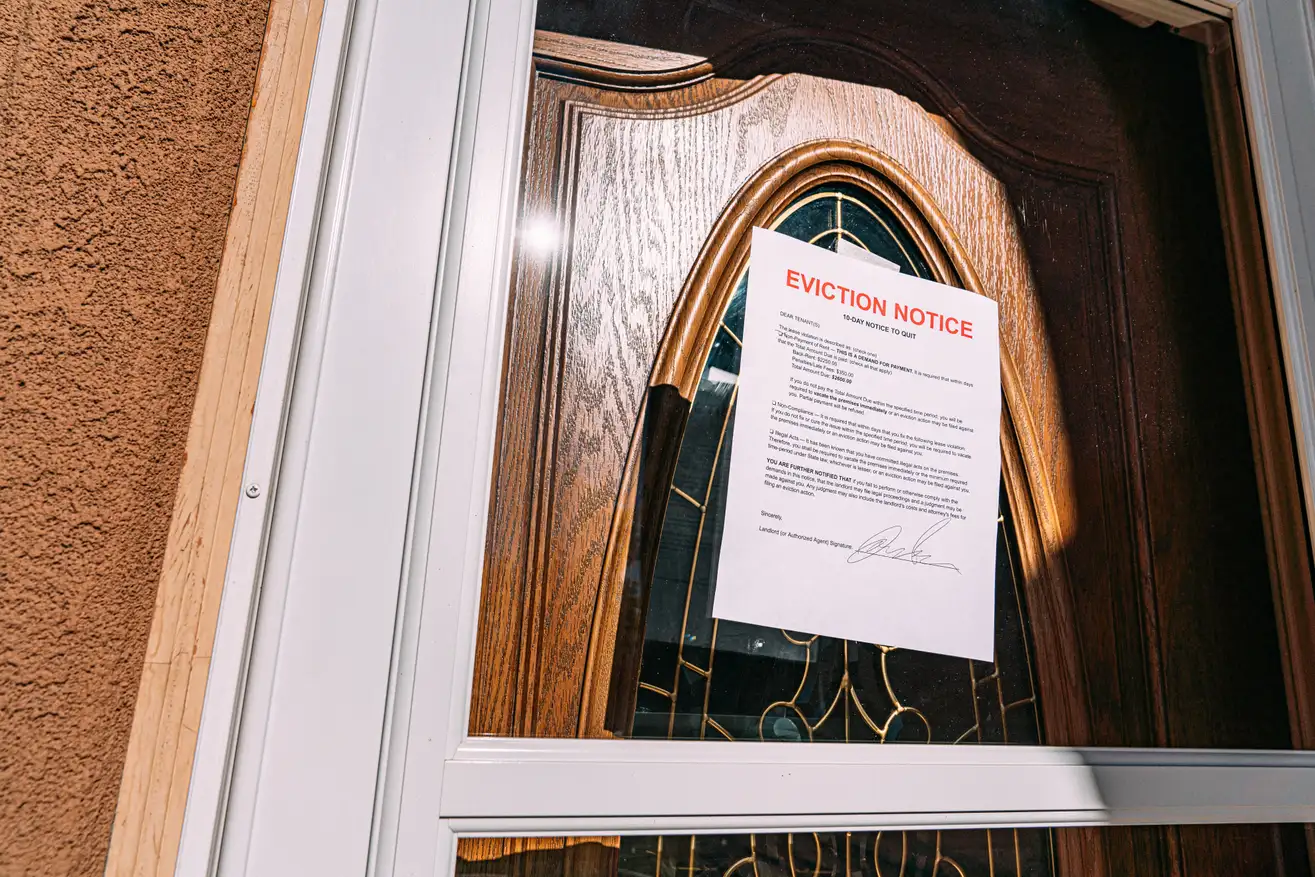By Jessica Washington
A brightly colored eviction notice plastered on the door frame is an image most of us can easily conjure. But what happens after the bags are packed, and all that remains from the place you once called home is a scarlet E on your record?
A recent report from Policy Link, a non-profit research group, is shedding light on the aftermath of evictions in Pennsylvania. Since the COVID-19 pandemic, hundreds of thousands of evictions have been filed in the Commonwealth. And just in the last year, 114,000 evictions were filed in Pennsylvania, a disproportionate number of which were filed against Black women.
But immediate displacement isn’t the only concern. As the report spells out, landlords regularly check tenant’s rental history and often refuse to rent to tenants with eviction filings, regardless of whether that person was ever actually evicted or even if it was a simple clerical error.
“It makes you feel defeated and hopeless,” Jennifer Lee, a mother of two who was evicted in 2015, said in the report. “You have no help and nowhere to turn to—all because of something that happened years ago. And even if a landlord files an eviction, and it never gets to the point where the judge says, ‘You’re evicted. You have to leave,’ that still shows up on your record, and it follows you.”
Rasheedah Phillips, Director of Housing at Policy Link, spoke to the Root about the ways in which this cycle tends to disproportionately impact Black women. “Black women are facing a system that puts them behind at every step of the way,” says Phillips.
Because of systemic racism and the wage gap, Black women already struggle to find affordable housing. In Philadelphia, Phillips says that over 70 percent of the people facing evictions are Black women, who are often the heads of their households. “And so in a lot of these situations, we’re dealing with Black single women with children who are facing eviction and then facing discrimination on the front-end as they try to rent other apartments either because of an eviction record, just because they had a child… [or] they have a section 8 voucher.”
These women are then left desperately trying to find a place that will accept them even if it puts them at risk of future evictions. “If someone has an eviction record, you are pushed off into the corners of the city, where your only options are renting from a slumlord or renting a place that is not healthy for you or may not even be affordable because it’s all you can get,” she says. “These are the sort of situations that Black women are, more often than not, forced into, and so that perpetuates the cycle.”
This isn’t just an issue in Philadelphia. Nationally, Black women are significantly more likely to face evictions than white women. A report from the Center for American Progress noted that 1 in 5 renters likely to face eviction or be behind on rent are Black women.
Those dire numbers don’t mean this situation is hopeless. Policy Link made a number of suggestions that would help end the eviction cycle, including regulating tenant screening systems, strengthening legal protections for tenants, and a system of expunging or sealing eviction records for outdated, disproven, or unproven eviction cases.

